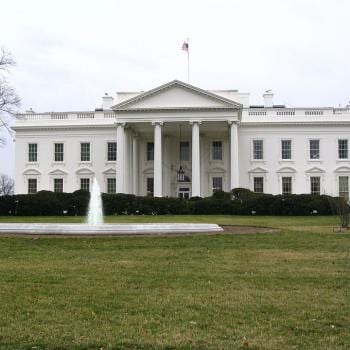(Cross-posted at Religious Rhetorics.)
For my inaugural Vox Nova piece, I’d like to reflect on recent developments in Italy, which offer both an important model for U.S. Catholics’ political involvement, as well as an opportunity for self-reflection within the American pro-life movement.
After a July 15 legislative victory in which pro-choice and pro-life members of the Italian parliament worked together to pass a UN resolution condemning forced abortion, prominent conservative Catholic politician Rocco Buttiglione gave an interview to Italian daily newspaper Corriere della Sera saying that he no longer thinks criminalization should be the primary goal of the pro-life movement. He argues that instead, pro-lifers should work to make sure women are empowered and do not feel forced into abortion. He is quoted as saying (all emphasis mine),
Let me explain it theologically. God gives the child to the mother in a very special way, such that to defend the child in opposition to the mother may be an act of justice, but it is impossible. We should instead support the mother, work to free her: the more free she is, the harder it will be for her to give up her child.
In a follow-up interview with the Catholic Family and Human Rights Institute on July 28, Buttiglione clarifies his position more, saying,
…we relied too much in the past on the penal sanction. That is only one element in the strategy to defend life, but not the only one element. And I reiterate, if we do not remove the causes that lead so many women to abort, we will not win our battle against abortion. We will not win our battle against abortion relying only on penal sanction.
This sounds very similar to the arguments made by progressive, common ground Catholics in the U.S. that working collaboratively on abortion reduction strategies would be more effective at ending abortion than Republican criminalization strategies (for which position such Catholics are too often accused of violating their Catholic identity, and by extension, their pro-life credentials). One also can’t help but be reminded of current proposed legislation like the Casey-Davis “Pregnant Women Support Act,” and the Ryan-DeLauro “Preventing Unintended Pregnancies, Reducing the Need for Abortion, and Supporting Parents Act.”
While Buttiglione’s remarks may not have yet earned him the same level of acrimony from conservatives as common ground Catholics in the U.S. have experienced (perhaps due to his longstanding credibility within conservative Catholic circles), his interview has nonetheless renewed concern amongst the U.S. pro-life movement that common ground approaches undercut “unity” within the movement. In the follow-up interview, Buttiglione responds to these concerns, saying,
It is important to make things clear, because I know it is easy in the press to try to break the unity of the pro-life movement. Of course I want to be able to speak on friendly terms with the Obama administration – I know this is blasphemy to many pro-lifers in the United States! But on the other hand I want to be understood by American pro-lifers, and I do not want to break the unity of our front.
The reason I draw attention to this point is that I think it is symptomatic of something deeply troubling in the pro-life movement: namely, the notion that to challenge the tactics of certain factions of the movement is the same thing as challenging the cause itself, namely, the respect for human life and dignity. This problem is also manifested when a July 29 Zenit story on this subject opens by saying that in the aforementioned Corriere della Sera interview, Buttiglione,“one of Europe’s most respected and prominent pro-life politicians” had “allegedly compromised his views on abortion” by shifting his emphasis from criminalization to supporting women – again, the equation of strategy with values.
This stems in part from the underlying battle metaphor at work in the movement’s self-understanding, in which ending abortion is a straightforward clash between the forces of good and evil. Operating under this metaphor, the forces of good must therefore put forth a united “front” against the forces of evil, which means not acknowledging any flaws within the movement, nor merits within the opposition. Not only does this prevent the pro-life movement from engaging in fruitful self-reflection; it also strengthens the perceptions of those outside the movement that pro-lifers are just ideological zealots rather than thoughtful citizens. This decreases the credibility of all pro-life concerns.
Buttiglione to some extent acknowledges this issue of pro-life credibility through his emphasis on maintaining a good relationship with the Obama administration – and his wry acknowledgment that this is “blasphemy to many pro-lifers in the United States.” Buttiglione doesn’t expand on this point, but I would go further, and argue that the tendency of conservative Catholics to always think the worst of President Obama in regards to abortion may well serve as a self-fulfilling prophecy. If politically it seems to the Obama folks that there’s no point in appeasing pro-lifers because they will just skew it in the worst possible light regardless (and thus refuse to compromise or collaborate), then it won’t seem in the Obama administration’s political interest to do so. That doesn’t make them soulless – it just makes them pragmatic, when they’re trying to balance a lot of competing interest groups. As a result, pro-life concerns within larger legislation – like appropriations, health care reform, and so on – may be ignored.
Rather than smugly taking such occurrences as proof that the Obama administration is “anti-life,” Catholic pro-life groups would do well to note Rocco Buttiglione’s recent common ground success – and how he achieved it.











